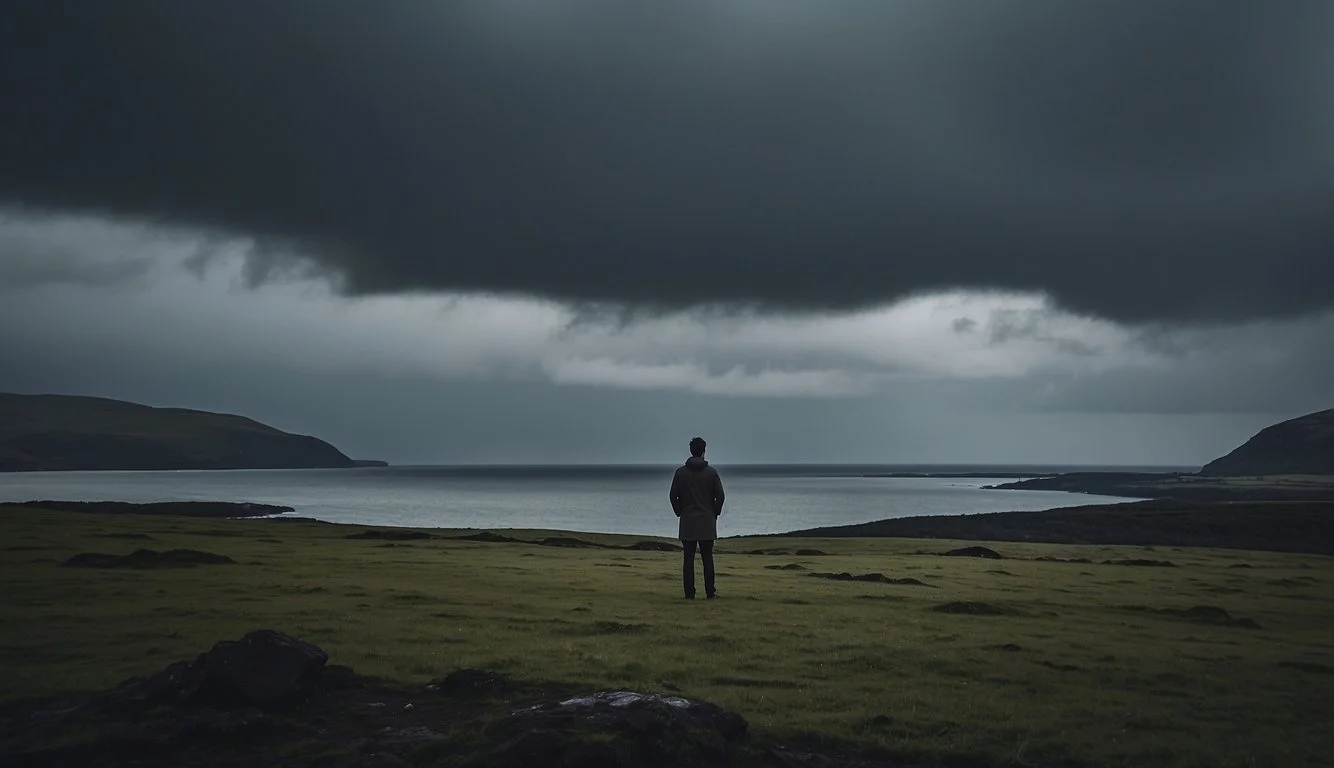Documentary Review: Strong Island (2017)
A Deep Dive into Justice and Grief
Yance Ford’s 2017 documentary, Strong Island, takes an unflinching look at the personal and systemic implications of racial injustice in America. It tells the heart-wrenching story of William Ford Jr., a young black man killed by a white man, and the subsequent failure of the justice system to right this wrong. The film’s narrative, shaped by Ford's own experiences and insights, makes it both a poignant exploration and a powerful call to action.
Through a non-linear storytelling approach that weaves together personal memories and broader social commentary, Strong Island paints a vivid picture of the Ford family’s struggles. The documentary delves into their attempts to move beyond the oppressive confines of the Jim Crow South by relocating to New York, only to face a different kind of systemic oppression. This narrative structure helps illustrate the enduring and pervasive nature of racial prejudice.
Ford's meticulous direction and emotional depth in recounting his brother’s story transform Strong Island from a mere documentary into a deeply emotional journey. The film’s raw honesty and piercing examination of race, loss, and justice resonate profoundly, challenging viewers to confront uncomfortable truths about society.
Overview of 'Strong Island'
Strong Island is a 2017 documentary directed by Yance Ford.
The film explores the tragic story of William Ford Jr., a young black man who was shot and killed in April 1992 in Central Islip, New York, by a white auto repair shop employee. This incident is the central focus of the documentary.
Yance Ford, the director, is also the brother of William Ford Jr. The personal nature of the film brings a deeply intimate perspective to the narrative.
Told in a non-linear fashion, Strong Island intertwines family interviews, personal reflections, and historical context. The film serves as a poignant examination of race, justice, and grief.
The Ford family moved to New York City to escape the Jim Crow South, seeking better opportunities. This backdrop adds layers to the narrative, showing their striving for upward mobility.
Yance Ford uses a combination of archival footage and first-person interviews. His mother, a former teacher who worked near Riker’s Island, emerges as a particularly captivating interview subject.
Strong Island received critical acclaim for its deeply personal storytelling and was awarded at the Sundance Film Festival. The film is available on Netflix.
The documentary delves into systemic issues within the justice system. It questions the handling of the case by the Suffolk County Police Department, which filed the killing as a homicide with no charges brought against the shooter.
The film's narrative doesn't just highlight the personal tragedy but also examines broader social and racial injustices, making it a powerful piece of documentary filmmaking.
Filmmaker Background
Yance Ford, the director of "Strong Island," brings a deeply personal dimension to the documentary. Ford’s career and unique personal connection to the story enhance the film's profound impact.
Yance Ford's Career
Yance Ford is a talented filmmaker and producer known for their work in documentaries that address critical social issues. Ford served as a series producer for the acclaimed PBS program "POV," highlighting independent films with a focus on diverse and marginalized communities. Ford's dedication to storytelling earned them a reputation for creating impactful and thought-provoking content.
In addition to "Strong Island," Ford has contributed to various projects that explore themes of race, identity, and justice. Their work is marked by a commitment to authenticity and social change, setting a high standard in the documentary genre.
Personal Connection to the Story
Ford’s personal connection to "Strong Island" is central to the film’s emotional depth. The documentary centers on the 1992 murder of their brother, William Ford Jr., a young Black man killed by a white mechanic in New York. This tragedy profoundly affected Ford's family and remains a poignant example of racial injustice.
Through "Strong Island," Ford not only recounts their brother's story but also addresses the broader implications of racial bias in the justice system. This personal narrative adds a layer of intimacy and urgency to the documentary, making it a powerful testament to the enduring struggle for justice and equality.
Narrative Structure of the Documentary
Strong Island employs a unique, non-linear narrative structure that weaves together past and present events to explore themes of loss, race, and justice. This approach serves to emphasize the emotional weight and complexity of the story.
The documentary frequently shifts between different time periods, using personal testimonies, archival footage, and still photographs. These elements are interspersed to create a tapestry of the Ford family's experiences and memories.
Interviews with family members and friends provide first-hand accounts that anchor the narrative. Yance Ford, both the director and sibling of the victim, guides the viewer through a deeply personal journey, blending direct address and reflective voiceovers.
The use of archival footage and personal photographs helps to contextualize the events and give a sense of place and time. This method allows the viewers to piece together the story actively, rather than being handed a straightforward chronology.
To heighten emotional engagement, the documentary often employs close-up shots of interview subjects, focusing on their faces and expressions. This technique draws the viewer into the narrative, making the pain and struggles of the Ford family more palpable.
A notable aspect of the documentary's structure is its deliberate pacing. By not adhering strictly to chronological order, the film reflects the disjointed and fragmented nature of grief and memory. It compels viewers to engage deeply with the family's quest for justice and understanding.
Strong Island effectively uses a mix of storytelling techniques to deliver a powerful and intimate portrait of a family's enduring pain and resilience.
Themes and Motifs
"Strong Island" navigates the intricate themes of justice and the legal system, family and grief, and the persistent racial tensions in America. Each theme is dissected through the personal and emotional lens of William Ford Jr.'s tragic story.
Justice and the Legal System
The documentary scrutinizes the intricacies of the American justice system. William Ford Jr.'s murder, filed as a homicide by the Suffolk County Police Department, reveals the systemic failures and biases. It addresses how the legal procedures often fail black Americans. The jury's decision not to indict the white teenager who killed Ford brings to the forefront issues of racial injustice. The film uses court documents and interviews to highlight these flaws.
Family and Grief
Ford's family faces profound grief following his death. The documentary delves into their emotional responses, showing how the tragedy affects each member. Yance Ford, the director and brother of William, conveys a deeply personal perspective. The film captures intimate moments of mourning, emphasizing the long-term impact of unresolved justice on a family. The mother and father’s migration from the Jim Crow South to New York adds historical context to their emotional journey.
Racial Tensions in America
The film paints a vivid picture of racial tensions that are still prevalent in the United States. It not only documents William Ford Jr.'s death but also contextualizes it within a broader societal framework. Through interviews and personal anecdotes, "Strong Island" underscores the persistent disparities faced by the black community. The documentary serves as both a specific recounting of one family's loss and a broader commentary on racial dynamics in America.
Visual and Cinematic Techniques
"Strong Island" employs a range of visual and cinematic techniques to create a powerful narrative. The use of non-linear storytelling allows the film to explore the emotional depth and historical context of William Ford Jr.'s life and death.
The documentary integrates home videos and photographs to build a personal connection with the audience. These elements provide an intimate glimpse into the Ford family's life, emphasizing their humanity and the tragedy of their loss.
Interviews are conducted in a minimalist setting, focusing on the subjects' faces. This method captures raw, unfiltered emotions, drawing viewers into the personal grief and struggles of Ford's family.
Close-up shots and static camera work contribute to the film’s immersive experience. By avoiding unnecessary movement, the focus remains on the subjects and their harrowing recounts, enhancing the documentary's emotional impact.
The documentary utilizes original score and ambient sound to underscore the gravity of the subject matter. The music is subtle yet evocative, reinforcing the film's emotional tone without overshadowing the narrative.
Color grading and lighting play crucial roles in setting the mood. Darker tones and shadows are used to symbolize the weight of the family's grief and the bleak injustice they face.
By combining these techniques, "Strong Island" skillfully brings the audience into a personal and poignant examination of race, loss, and the justice system.
Critical Reception
"Strong Island" has garnered considerable attention both for its compelling narrative and its exploration of complex themes. The documentary has been the subject of numerous critical reviews and has garnered various awards and recognitions.
Awards and Recognitions
"Strong Island" premiered at the Sundance Film Festival and quickly earned critical acclaim. It won a Special Jury Award for Storytelling at Sundance.
At the 2018 Oscars, the film was nominated for Best Documentary Feature. This nomination was historic as Yance Ford became the first openly transgender director to receive an Oscar nomination. Additionally, the film won several other award nominations and victories, including recognition from the Gotham Awards and the Peabody Awards.
Critical Reviews and Response
Critics have praised "Strong Island" for its powerful and emotional storytelling. The documentary has an impressive rating on Rotten Tomatoes, with many reviewers highlighting its raw and unflinching approach.
Notably, Roger Ebert's review lauded the film's non-linear narrative and the impactful way it reveals the hidden traps of upward mobility. The New York Times commended it for exploring the deep impact of grief and racial injustice. Both critics and audiences have found "Strong Island" to be a poignant and essential watch.
Social and Cultural Impact
Strong Island delves into significant themes of racial injustice and systemic inequality in the United States. The film highlights the tragic death of William Ford Jr., a young African-American man, and the ensuing grief his family endures. These personal experiences underscore broader societal issues, making the documentary a powerful commentary on race relations.
The documentary illuminates the racial bias prevalent in the justice system, specifically addressing the actions of the Suffolk County Police Department and an all-white grand jury. This judicial failure resonates with many similar cases, sparking conversations about legal reforms and accountability.
Strong Island has had a substantial impact on audiences and critics alike, reflected in its accolades and critical acclaim. It has raised awareness and fostered discussion about the enduring issues of racial discrimination and legal inequalities.
Educational institutions and advocacy groups have utilized the film as a resource to educate and prompt dialogue. By connecting individual stories to larger systemic problems, it becomes a catalyst for social change.
Media Coverage:
Roger Ebert: Highlights the emotional weight and narrative power of the film.
Variety: Praises the film's cinematic approach and emotional depth.
Common Sense Media: Emphasizes the documentary’s relevance to ongoing discussions of racial injustice.
The documentary has also catalyzed community screenings and discussions, pushing the narrative beyond traditional platforms. This grassroots engagement demonstrates its real-world influence and the potential to inspire activism and policy change.
Comparisons to Other Documentary Works
"Strong Island" stands out for its deeply personal narrative and unique storytelling approach. Unlike traditional documentaries, it blurs the line between the subject and the filmmaker, offering an intimate look at Yance Ford's family tragedy.
Comparison with "13th": Ava DuVernay's "13th" provides a systemic examination of race and incarceration in the U.S. "Strong Island" narrows the focus to a single family's story, making the impact more intimate and visceral.
Contrast with "The Thin Blue Line": Errol Morris’ "The Thin Blue Line" also tackles a wrongful death but through a more investigative lens. "Strong Island" is more emotional and reflective, focusing less on solving the crime and more on exploring its impact.
Similarities with "Bowling for Columbine": Both documentaries delve into the consequences of violence. While Michael Moore's film uses a broader, political approach, Ford’s documentary relies on personal testimony to convey its message, making it heartfelt.
Difference from "I Am Not Your Negro": Raoul Peck’s "I Am Not Your Negro" uses James Baldwin’s unfinished manuscript to critique America's racial history. "Strong Island" is more contemporary and personal, focusing on a single event and its fallout within a family.
The varied approaches in these documentaries demonstrate the multitude of ways filmmakers can tackle serious societal issues, whether through intimate personal narratives or broad systemic analyses.
Conclusion
"Strong Island" serves as a profound exploration of grief and systemic injustice.
The documentary frames the narrative through the lens of the Ford family's personal experiences.
Yance Ford's intimate portrayal brings a raw, emotional depth that transcends the screen.
Key Themes:
Race and socio-economic barriers
The impact of the justice system on Black families
Personal stories as a vehicle for broader societal critique
"Strong Island" employs a non-linear storytelling approach, providing a compelling and immersive viewing experience. The film delicately balances between the personal and the political, ensuring the audience remains emotionally engaged.
In interviews, archival footage, and personal monologues, the film meticulously pieces together the events surrounding William Ford Jr.'s tragic death.
"Strong Island" is both a personal and universal story, highlighting issues that resonate far beyond its specific circumstances.








